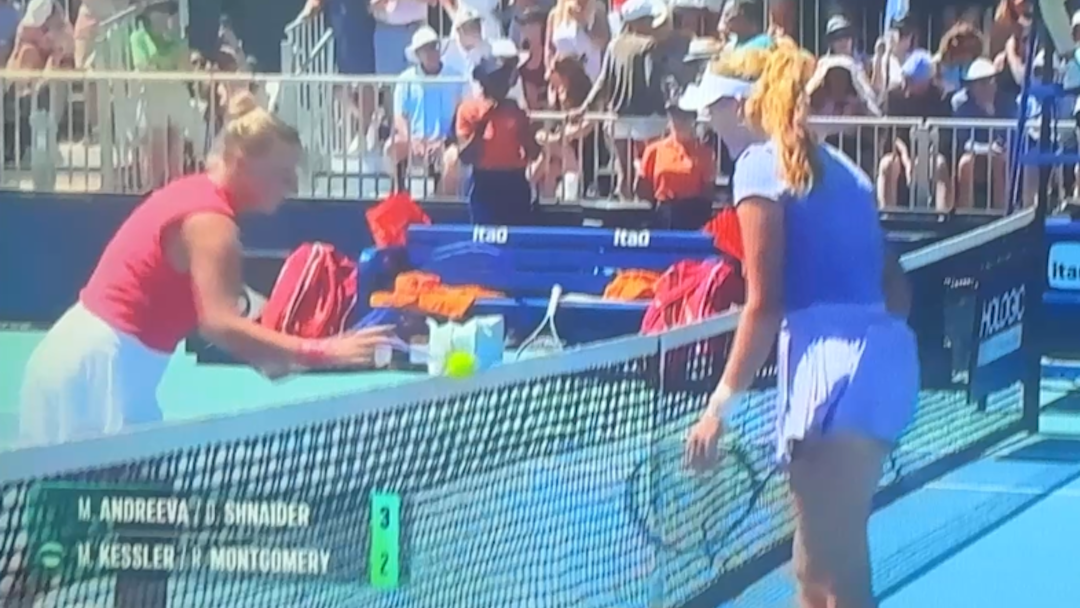Shortly after my 28-year hiatus from tennis ended, my very first USTA League team advanced to 9.0 Mixed Sectionals. Not coincidently, I have already told some of that story in a two-part post starting with “My Days as an NTRP Sandbagging Bastard.” That Sectional Championship was also my first exposure to the potential consequences of whole team defaults. The penalties can be harsh, at least in Texas.
As an editorial aside, this post references current regulations for something that happened almost 10 years ago. I don’t believe these sections of the rules have fundamentally changed in the interim. However, I do not have access to the documents that were in effect at that time to even do the cross-reference. This is a “close enough” situation.
The USTA National League Regulations essentially define a “whole team default” as not fielding enough valid lines to win the matchup. In other words, it is when a team defaults on the majority of the matches that should have been played. The USTA National League Regulations contain provisions for how team defaults are accounted for in team standings. That is serious business because those matches may have a significant impact on the advancement of other teams competing at the Sectional and National levels.
That same section within the USTA National League Regulations stipulates that the Sectional Association may impose further penalties on the defaulting team.
Scoring of Full Team Defaults. If a team defaults an entire team match for any reason during round robin play, that team is ineligible to continue play at that championship. All matches of the defaulting team already played shall be null and void when determining standings but will be used for individual player ratings and individual player advancement purposes. If all teams with a mathematical chance to advance have played the defaulting team in good faith, those matches shall stand as played when determining standings. The Sectional Association may impose further penalties on the defaulting team.
2023 USTA League Regulations, 2.03L
That means that each Section determines the “further penalties” and documents the consequences. In Texas, that information is contained within the USTA Texas League Regulations.
Team Penalty for Pulling Out of the Sectional Championships. When a team, which is scheduled to play in a Sectional Championship, pulls out within 14 days of the Championship or leaves a Sectional Championship, causing a full team forfeit before completing all scheduled matches, all players on the forfeiting team can play in their local league the following year but cannot advance to any Texas Sectional Championships for a period of 12 months, including the Sectional Championship they dropped out of for the following year. The local league coordinator for the city or area in whose league the team played will be notified of the year suspension for all players on the team. The team through their local league coordinator may appeal their suspension within 14 days of notification to the Section Appeals Committee who may grant relief under extenuating circumstances.
Excerpt from 2023 USTA Texas Section Operating Procedures
To summarize, all players on the roster of a team that creates a team default at Sectionals will be suspended from future Sectional Championships for 12 months. That potentially includes players that did not travel or were otherwise not available for the Sectional Championship. The suspension is across all possible leagues, not just the one where the defaults occurred.
Consequences at a Mixed Sectionals of Yore
When I went to my very first USTA League Sectionals with my mixed team, another team in our pool defaulted two of the three lines in their first-round matchup. It was a team with a small roster from Bryan/College Station. Two brothers on that team sat for a college exam that morning thinking they would still barely make it to the match on time. Unfortunately, they encountered a serious traffic backup en route which delayed their arrival.
The missing players arrived shortly after the first match had been defaulted away and played the remainder of the weekend. Our captain didn’t tell us that all their matches would be voided until after we played them in the second round. She wanted to see how well some of our pairings performed under the pressure of Sectionals. (Spoiler Alert: Not well.)
Per the letter of the law, that team’s entire roster should be suspended from Sectionals for the following year. That includes the players who showed up and played in good faith as well as anyone who was on the roster who didn’t make the trip. This seems horribly draconian.
The regulations state that the “Section Appeals Committee may grant relief under extenuating circumstances.” I have no idea how this particular case ultimately played out on an individual or team basis, but I hope that some appeal was approved. The potential punishment didn’t seem to fit the circumstances.
I was reminded of that incident and decided to write about these rules based on something that happened at Texas Tri-Level Sectionals last weekend. That is the subject of tomorrow’s post. Spoiler Alert: Sometimes the very same punishment can actually feel quite lenient.
- 2023 USTA League Regulations, document dated December 22, 2022.
- 2023 USTA Texas Section Operating Procedures, Public Google Doc, downloaded 12/18/2022.



